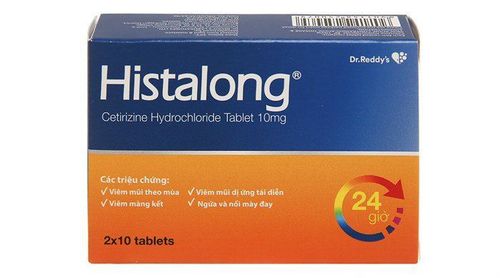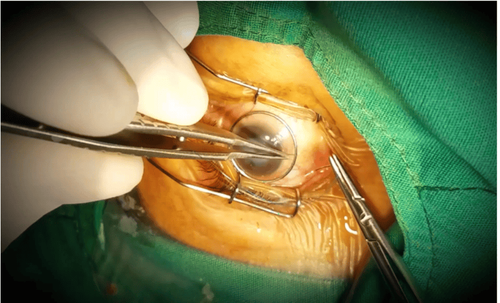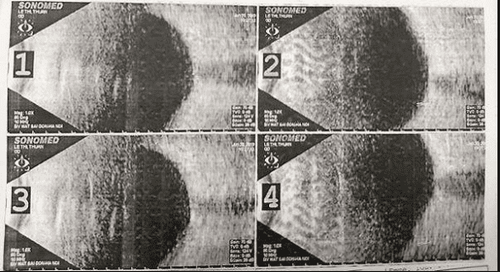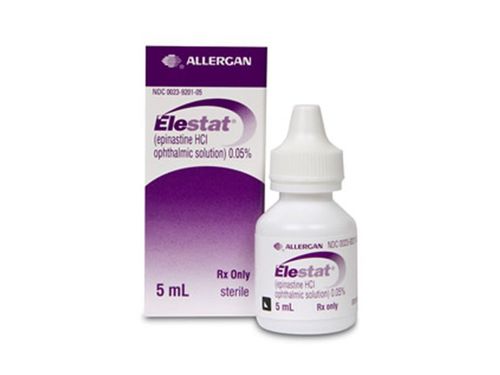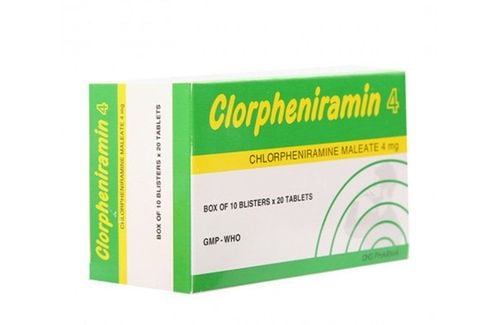This is an automatically translated article.
Allergic conjunctivitis causes a lot of pain and nuisance in the daily life of patients. It can even cause serious complications if not detected and treated properly. The following is a regimen for the treatment of allergic conjunctivitis.
1. Treatment regimen for allergic conjunctivitis
1.1. Morphological overview of allergic conjunctivitis Similar to other allergic conditions, allergic conjunctivitis also occurs when the immune system identifies a harmless agent as an allergen. This causes the immune system to overreact and produce antibodies, called immunoglobulins (IgE). All these antibodies go to the cells, then release chemicals that mediate and cause an allergic reaction.
In a country with a hot and humid climate like ours, the rate of allergic conjunctivitis is very high. Not only that, 90% of patients also have allergic diseases in other organs such as: Rhinitis - allergic sinusitis, asthma ... accompanied by symptoms of itchy eyes, difficulty breathing, sneezing, runny nose. nose... Of which, only 10% of "lucky" only suffer from simple allergies in the eye area
Clinical forms of allergic conjunctivitis include: Spring conjunctivitis, conjunctivitis according to the symptoms of allergic conjunctivitis. Seasonal conjunctivitis, giant papillary conjunctivitis and atopic conjunctivitis Among them:
Seasonal conjunctivitis is the most common form and tends to develop into a chronic, year-round, accompanying inflammation. Allergic conjunctivitis springtime allergic conjunctivitis is the most persistent and difficult to treat, usually appearing in boys aged 5-7 years, with a history of eczema or a family history of allergies. Giant papillary conjunctiva usually occurs in people who have direct mechanical contact of the ciliary conjunctiva with foreign bodies such as prosthetic eyes, contact lenses, sutures... , easily seen on clinical examination g. Atopic dermatitis often occurs with atopic dermatitis, causing vision loss. 1.2. Symptoms and diagnosis of allergic conjunctivitis In particular, the treatment of allergic conjunctivitis is often accompanied by dry eyes. Their pathological relationship is quite complex, making it difficult to distinguish between causes and effects. Therefore, the subjective manifestations of the disease are quite diverse, such as: temporary blurred vision, difficulty opening eyes in the morning, causing a feeling of dryness, instability when using contact lenses, a lot of rust, bleeding tears, fear of light, feeling like grit in the eyes, itching, irritation....
Of which 80% of patients have symptoms of itching, forced to rub or scratch their eyes. This is also a key point in helping doctors diagnose the disease. In some cases, there are also systemic symptoms such as fatigue, rhinitis, sore throat, mild fever, swollen lymph nodes in front of the ears, sore throat when swallowing saliva.
When examining, the doctor can detect lesions from mild to severe, depending on the clinical form, have caused complications or not. Mild conditions may present with conjunctival edema or focal conjunctival edema, usually in the lower eyelid, in addition to conjunctival puffiness. More severe cases are edema of the entire conjunctival conjunctiva with inflammatory papillae.
On the other hand, the cornea can also be inflamed to the margin, with neovascularization, aseptic ulcerative inflammation. It will complicate the vision loss by scarring or ulceration of the cornea. Therefore, if the patient uses uncontrolled drugs, it can backfire, leading to many dangerous situations for the eyes, sometimes incurable such as: Cataracts, glaucoma caused by corticosteroids, muscle infections. association or coordination.
The above symptoms can occur singly or in conjunction with allergic rhinitis and usually occur within a short time, after exposure to the allergen. Symptoms caused by seasonal allergies will tend to worsen if the trigger is indoor allergens such as animal dander or dust mites. However, they can be gradually reduced if the person is taking anti-allergy medication, which helps to prevent allergic reactions.
The correct diagnosis is the first step to help the patient find a solution to reduce the discomfort caused by allergic conjunctivitis. A well-trained and experienced doctor will easily determine the exact cause of the symptoms and develop an appropriate treatment regimen for allergic conjunctivitis.
1.3. Management and treatment of allergic conjunctivitis In the case of allergic conjunctivitis caused by indoor causes, contact avoidance is key to treatment. Patients should limit opening windows or keeping pets, using vacuum cleaners and air purifiers to remove allergens that can cause allergies.
In the case of allergies to pollen or other seasonal allergens, here are some suggestions:
Use a wide-brimmed hat and a scarf to reduce allergens eye contact. Wear eye protection. Use saline drops in your eyes after going outside to remove allergens. Over-the-counter antihistamines and eye drops are often prescribed to treat the symptoms of allergic conjunctivitis. However, prolonged use of the drug is not a good option, because it can make symptoms worse. In many cases, your doctor will prescribe stronger medication if symptoms persist without improvement.
Besides, corticosteroid eye drops are highly effective but often cause side effects, even if the patient only uses them for a short time. Therefore, the use of these drugs should be prescribed and managed by an ophthalmologist, in order to limit side effects.
2. Note when treating allergic conjunctivitis
Patients should pay attention to the following issues to make the treatment process of allergic conjunctivitis go faster and more effectively:
Separate use of personal items at home as well as at work, study, study. practice, ensure that personal items are cleaned before use. Do not use your hands or other objects to rub your eyes. When sneezing, cover your mouth and nose. Use hand sanitizer and disinfectant solution daily to clean hands. When using contact lenses, it is necessary to consult and consult a doctor, especially when there are uncomfortable symptoms in the eyes. During the course of drug treatment, if the disease does not improve or appears strange symptoms, the patient should immediately contact a specialist for instructions on how to handle it promptly and appropriately. When going out, it is necessary to wear protective eyewear, especially in places where there is a polluted environment, a lot of dust, chemicals. The above is a detailed treatment regimen for allergic conjunctivitis, although it is not too dangerous, the patient should still go to reputable facilities for examination and avoid making the disease worse.
Please dial HOTLINE for more information or register for an appointment HERE. Download MyVinmec app to make appointments faster and to manage your bookings easily.





